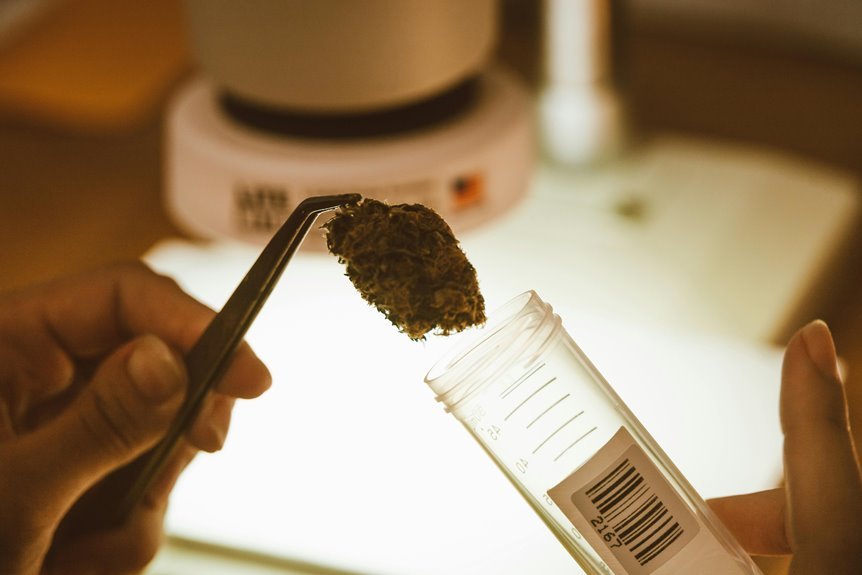Will Cbd Show up in Urine Test

The presence of CBD in urine tests remains a complex issue. Primarily, it hinges on various factors, including dosage and product type. While standard drug tests typically do not target CBD, the potential for trace THC contamination complicates the matter. Additionally, individual metabolic differences can influence outcomes. Understanding these nuances is crucial for those consuming CBD, particularly in contexts where drug testing is a possibility. What implications might this have for users?
Understanding CBD and Its Composition
Cannabidiol (CBD), a prominent compound derived from the Cannabis sativa plant, has garnered significant attention for its potential therapeutic benefits.
Its growing popularity is influenced by increasing awareness of CBD legality across various regions.
Research indicates multiple cbd benefits, including anti-inflammatory and anxiolytic properties.
However, the legal status can vary, necessitating careful consideration of local regulations before use.
The Metabolism of CBD in the Body
When consumed, CBD undergoes a complex metabolic process primarily in the liver, where it is broken down by cytochrome P450 enzymes.
This CBD metabolism results in various metabolites, which may be detectable in urine analysis.
Understanding this process is crucial for individuals concerned about potential drug testing outcomes, as the metabolites' presence could influence results, depending on the sensitivity of the urine analysis employed.
Factors Affecting CBD Detectability in Urine Tests
Several factors can influence the detectability of CBD in urine tests, including dosage, frequency of use, individual metabolism, and the type of CBD product consumed.
Higher CBD concentrations and regular usage may increase the likelihood of detection.
Additionally, individual metabolic rates can vary significantly, impacting how quickly CBD is processed and eliminated from the body during urine testing, ultimately affecting test results.
Distinguishing Between CBD and THC in Drug Testing
The primary challenge in drug testing lies in differentiating between CBD and THC, the two most well-known cannabinoids.
While CBD legality varies across jurisdictions, THC remains the primary target in drug testing due to its psychoactive properties.
Standard tests often cannot distinguish between the two, leading to potential legal and employment consequences for individuals using CBD products.
This underscores the need for more precise testing methods.
Conclusion
In conclusion, while CBD itself is unlikely to appear in standard urine tests, the presence of THC in some CBD products can lead to positive results. For instance, a professional athlete unknowingly using a full-spectrum CBD oil with trace THC might face suspension after a routine drug test. This highlights the critical importance of understanding product composition and individual metabolism, emphasizing the need for users to remain vigilant regarding potential implications of CBD consumption on drug testing outcomes.





